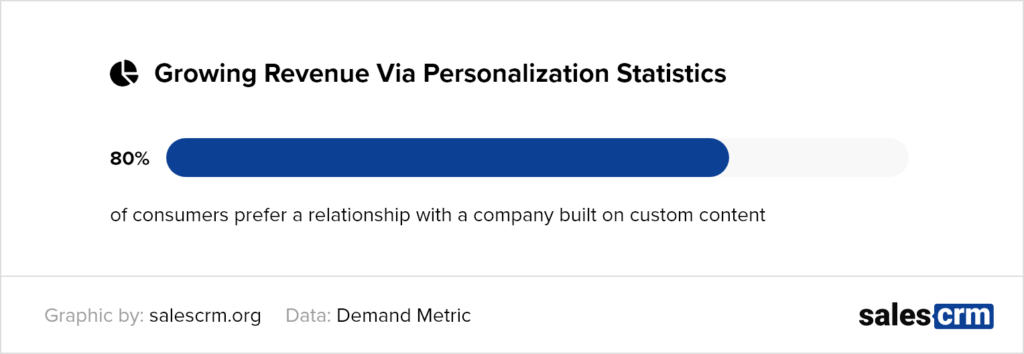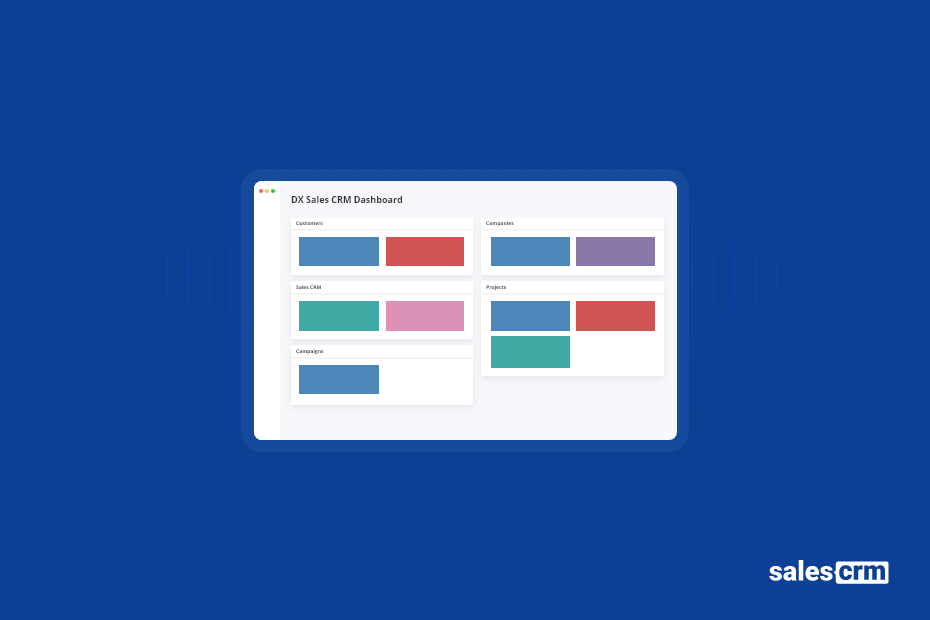No matter the size of the company you own or work for, the chances are good that you could benefit from introducing a CRM to your workflow. To understand just how impactful a CRM can be for your business, you need a better understanding of what they do and the advantages they can offer in terms of sales. If there is any tool you should consider adding to your business repertoire, it should definitely be this one.
Without using a customer relationship management system, business owners can quickly get overwhelmed by trying to stay on top of all the details that come with lead management. CRM services are suitable for businesses of all sizes that want to improve their customer relationships and lead prospects, with unique features like automation and real-time data to name two examples. Today’s CRM tools are allowing businesses to personalize and manage their relationships with consumers more efficiently and increasing the productivity and reach of businesses around the globe.
If you are not using a CRM yet, you may find yourself quickly falling behind your competitors that likely already have one implemented. CRM systems help companies to manage their customer relationships more effectively and are typically used by marketing, sales, and customer support teams. CRM’s can be used to not only nurture leads, but also close sales, monitor client data, streamline tasks, manage marketing campaigns, and much more. It’s obvious that without implementing a CRM, you’ll need to manage all these factors yourself which can very quickly become overwhelming and even cost you valuable sales.
This is how introducing a CRM can help you boost your sales for the better.
Growing Revenue Via Personalization
The most important part of a CRM is the customer relationship. A recent study by Demand Metric found that nearly 80% of consumers prefer a relationship with a company built on custom content. In short, people prefer personalized interactions with brands nowadays, and they expect an almost exclusive or luxury experience when it comes to support and marketing alike. Long story short, you need to personalize your messaging to be successful and a CRM can help you achieve this personalization easily and fulfill that requirement that all modern customers have.

Using a strong CRM allows you to personalize on a bigger scale, which will lead to increases in revenue. Nucleus Research has stated that for every dollar spent on a CRM, there is an average $8.71 in return. Beyond targeting specific audiences, you can also use a CRM to increase future conversions and referrals on a larger scale.
The question is, how exactly does CRM software benefit your sales? The answer is by enhancing lead management, strengthening the collaboration between sales and marketing, and improving the customer experience without the additional time and money needed.
Lead generation is one of the most important factors in growing revenue consistently, and it’s not possible to pursue this avenue properly without a good management system in place. What’s even more promising about using a CRM is the ability to categorize leads into the different stages of the sales funnel, so you can target those most likely to convert first. Not all your prospects will become successful sales conversions, so you want to focus your efforts on the ones that have shown the most interest and that will need the least amount of effort to convert.
Supporting Marketing

The importance of marketing for generating new leads cannot be underestimated. No matter the type of business you have, a CRM can support your marketing efforts and lighten the load on your marketing team while saving money. Using CRM marketing, you can segment your contact lists in order to send messages to leads in different stages of the sales funnel. This allows you to target your messaging even further, and personalize them to the customer in a meaningful way.
For example, using segmenting in a CRM, you can send individuals an eBook that addresses specific pain points or offer discounts to return customers. Customers further into the sales funnel might receive a marketing message providing them with a deal that will entice them to make a purchase. There really is no limit to what CRM’s can be used for in this aspect.
CRM’s can also take your marketing insights further by using reports and real-time data. Because these tools track a myriad of details from leads to engagements, you can get a better idea of what is working and what isn’t. This allows you to refine your marketing approaches and optimize them completely. Say a customer has attended a webinar offered by your company – using your CRM to gain insights, you can find out how many successful sales the webinar has led to.
When your leads receive content and marketing messages that tick all the right boxes, they become more likely to engage with those messages and more likely to convert into sales. Conversions like these can, over time, lead to customer loyalty, return business, and referrals.
Automation
The other way that CRM’s can help you boost your sales is through automation. CRM’s capture and report on contact data, but also automatically score your lead’s interest in your services or products. Lead scoring is essential to targeting your marketing efforts and nurture them towards a successful sale.
This automation also relates to important customer service factors, such as how long it takes before a customer query is responded to or your team attends to issues. The majority of CRM systems have automated alert features that allow you to set up notifications that alert your sales, marketing, or support teams when a particular action takes place. For example, if a customer has subscribed to your newsletter, you may want to set a reminder to follow-up with them a week later and try to make a sale. This functionality enables businesses to maintain the high quality of their services and responses to leads in a simple and organized way that still accelerates the sales cycle.
CRM automation allows any business to create processes outside of direct sales, such as collecting form data, tracking tasks, and more. Most commonly, marketing automation via CRM’s is done through the use of web forms, or email marketing campaigns.
Another benefit of using a CRM for this messaging is the ability to create content and schedule it to be sent at a later date. Some of these systems have also introduced the option to send your messages at optimized times to ensure that you will get a better open rate.
Organization

A big part of efficient sales processes is task management, especially in larger or distributed teams. When your sales and marketing teams are able to work together in harmony with clear tasks and goals, you will see your business thrive. Sales teams, in particular, make use of a lot of data when working with leads, and marketing teams often use the same data to optimize their efforts.
Managing customer accounts more efficiently with a CRM can make upselling and cross-selling easier. Many CRM’s can prioritize and notify you of actions that need to be taken on leads, helping you stay on top of customer relationships and reminding you to see to leads that are starting to slip away.
Some of the ways that CRM’s provide organization options include calendar integrations, VoIP capabilities, task lists, and templates to name just a few examples. Calendar integrations provide these teams with full visibility into scheduling to ensure no sales calls or deadlines are overlooked. VoIP refers to outbound and inbound calls being logged to ensure there is a track record for sales management. Task lists make it easy to assign tasks like calls, content drafts, emails, and more to specific teams and team members, while templates allow teams to respond to customers or create marketing campaigns in a flash.
Because CRM’s hold the data on all of these different factors, your teams can compare results and track the growth of your company but also get insights into what needs to be improved or changed. Marketing, in particular, is constantly evolving, and your team will be able to use the data provided by your CRM to try new strategies that will keep your leads list growing.
Without a CRM, potential customers can easily slip away or messages go unanswered. With the right CRM, you can set up alert functions that notify you or your team of actions that need to be taken to ensure customer support is consistent, but also track resolved queries.
CRM tools are an essential part of managing customer interactions, sales, and marketing messaging that every business can benefit from, whether it has two employees or two thousand. CRM’s hold a ton of advantages that can boost your sales, provided you are aware of them, and using them to their optimal potential.
This article should give you a good idea of some of the main ways your business could benefit from using a CRM. Teams of all sizes can benefit from implementing a customer relationship management tool, and if you are not doing so yet you could be missing out on valuable methods of revenue generation. If you’re looking to implement a CRM of your own, be sure to do research on which product best suits the needs of your business.
At the end of the day, the CRM you choose is less about you and more about the customer. The CRM tools available today are the modern-day version of putting the customer first and ensuring they have a good experience with your brand. By providing unparalleled service with your CRM, you are ensuring that your customers will come back for future spending or refer your business to others in their network.
Therefore, the impact of a CRM on your sales cannot be ignored. If you take the time to introduce a CRM now, you will surely see it pay off over the long-term.
